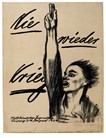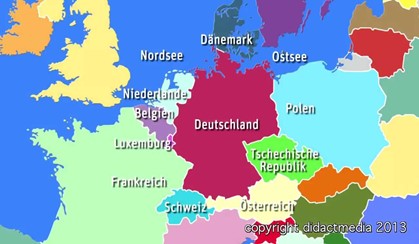

At the end of April 2024, a discussion and lecture evening with the founder of Nachdenkseiten Albrecht Müller took place in Anger, Upper Bavaria. The very well-attended and informative event attracted many interested people who were interested in the topic of peace in general and the development of this issue in Germany in particular. This was also the title of the event:
From “Never again war” to “war fitness” – how do we remain independent thinkers?
Albrecht Müller, who experienced bombing as a child during the Second World War, came to the conclusion that only people who have no idea of what a war actually means can speak of the necessity of Germany being “fit for war” today. Mr. Müller was particularly concerned to show the development of the unconditional will for peace after the war, the development of an enemy image against Russia in the 1950s, Willy Brandt’s Ostpolitik, the political and social development of Schmidt’s government right up to the present day. Unfortunately, we have now fallen back into the 1950s.
Notable statements made by politicians in the decades following the end of the Second World War included:
– “Change through reconciliation” (Willy Brandt and Egon Bahr 1963)
– “We want to be a nation of good neighbors” (Willy Brandt 1969)
– “Germany in its central position has neighbors, not enemies” (Helmut Schmidt)
– “Peace in common security” (SPD policy statement 1989)
– “Effective deterrence is our life insurance” (Boris Pistorius February 2024)
If I take just one statement, e.g. “Germany in its central position has neighbors, not enemies” and if I think it through seriously, if I think of it as an ideal and move it forward, if a large part of the population would see itself as Germany in this noble sense, what could that mean?

Germany as a country of good neighbors, as a country that regards peace and good relations with other countries as its highest value. This would be linked to a friendly interest in neighboring countries, an exchange, tourist and economic encounters and cooperation. With Austria, Switzerland, France, Luxembourg and Belgium, with the Netherlands, Denmark, Poland and the Czech Republic – an immense variety of languages, cultures and cultural treasures. If children were taught this basic understanding of Germany as a nation of good neighbors by their parents and teachers, then I believe Germany would stand in the midst of this world with a free and honorable attitude and self-respect. And this attitude would radiate to other countries. I am convinced that when individuals struggle for this dignity, it is a great contribution to peace.
There will always be voices that – as John Lennon puts it in his song “Imagine” – consider such ideas to be unworldly. (“You may say I am a dreamer, but I am not the only one…”) The creative imagination and thinking power of us humans, however, makes it possible to think about the desirable reality in a targeted and concrete way and to work with all our strength for a peaceful world.
This is how we go from being “dreamers” (Imagine) to “thinkers”.
I see Mr. Albrecht Müller as such a “thinker”.
He spoke and moderated in an open, objective and very connecting manner. This evening was a training ground for me in the sense of how reconciliation can arise among the participants, but also in how contributions that are emotionally charged work. An older man shared some thoughts on the topic of “war fatigue” and concluded by saying that war fatigue should be a natural human condition. These words had a unifying effect. A farmer who has been on friendly terms with Russian farmers for years also reported on his experiences in a way that opened up new perspectives and encouraged similar activities. Another younger participant called on those present to stop talking about “our” or “my” government, as he did not agree with it. Yet another made the claim that Willy Brandt’s prostration in Warsaw in 1970 had been staged. Statements like these created a rather divisive atmosphere, even a certain sadness, precisely because of their emotional, combative charge. Mr. Müller countered them in a simple manner by saying that everyone could see it as they saw fit, but that he could do little with such statements.
As I can see from Mr. Müller and some other participants, it is ultimately always the person in their ideal, their life experience and competence that leaves a lasting impression at an event like this and, despite some hasty attempts at rebellion, appears like a calm rock in the surf.
One thing I have realized is that where an issue is well-founded and communicated to the outside world, there is also cooperation and a build-up. On the other hand, where militant efforts and proposals to improve society are coupled with personal dissatisfaction, there is a breakdown, a division and a loss of strength for everyone. The person in battle seems lost and wears himself out. In contrast, a person thinking of an ideal has the effect of a sun on his surroundings.
One can rightly ask what motivates Mr. Albrecht Müller, who will be 86 years old in May, to tirelessly stand up for the self-determined and self-thinking individual to this day after an active professional life, to educate and promote encounters and exchanges between people and countries. And he has done so in a pleasantly calm and level-headed manner. Chapeau!


0 Comments